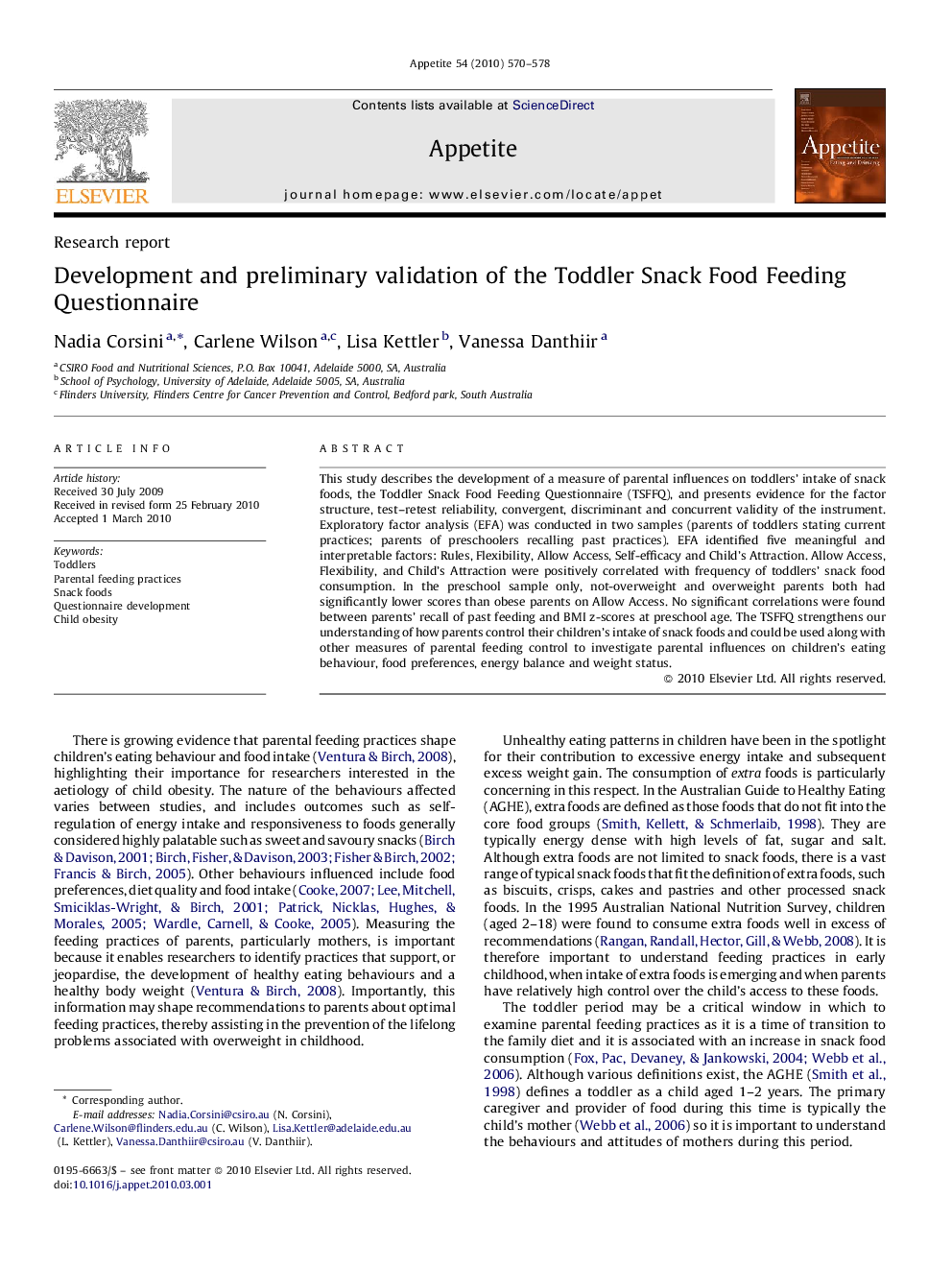| Article ID | Journal | Published Year | Pages | File Type |
|---|---|---|---|---|
| 940851 | Appetite | 2010 | 9 Pages |
This study describes the development of a measure of parental influences on toddlers’ intake of snack foods, the Toddler Snack Food Feeding Questionnaire (TSFFQ), and presents evidence for the factor structure, test–retest reliability, convergent, discriminant and concurrent validity of the instrument. Exploratory factor analysis (EFA) was conducted in two samples (parents of toddlers stating current practices; parents of preschoolers recalling past practices). EFA identified five meaningful and interpretable factors: Rules, Flexibility, Allow Access, Self-efficacy and Child's Attraction. Allow Access, Flexibility, and Child's Attraction were positively correlated with frequency of toddlers’ snack food consumption. In the preschool sample only, not-overweight and overweight parents both had significantly lower scores than obese parents on Allow Access. No significant correlations were found between parents’ recall of past feeding and BMI z-scores at preschool age. The TSFFQ strengthens our understanding of how parents control their children's intake of snack foods and could be used along with other measures of parental feeding control to investigate parental influences on children's eating behaviour, food preferences, energy balance and weight status.
